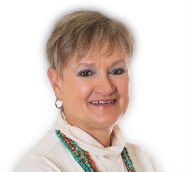Top-Rated Elder Law & Estate Planning Attorney Michele Ungvarsky Debunks Medicaid Qualification Myths – Las Cruces, NM
Leading elder law and estate planning lawyer Michele Ungvarsky, founder at E-Law in Las Cruces, NM, debunked myths about qualifying for Medicaid to pay nursing home costs. For more information please visit https://www.estradalawpc.com

Las Cruces, NM, United States – December 27, 2020 /MM-REB/ —
In a recent interview, leading elder law and estate planning lawyer Michele Ungvarsky, founder at E-Law in Las Cruces, NM, debunked myths about qualifying for Medicaid to pay nursing home costs.
For more information please visit https://www.estradalawpc.com
When asked for a comment, she said, “Unfortunately, there’s much misinformation out there regarding Medicaid as most people get their information from friends and relatives. Here are some of the most common myths circulating today about Medicaid qualification.”
One of the most widespread myths is that someone has to get rid of all their assets to qualify for Medicaid.
“This is often not the case. The majority of states say that you’re not allowed more than $2,000 in countable assets to qualify for Medicaid, but not everything you own will be lumped together as countable assets. Medicaid has exemptions for specific assets that people are allowed to keep and can still qualify.”
One prevalent misconception about applying for Medicaid benefits is that a look-back period is the same as the penalty period.
“When you apply for Medicaid, the government looks at financial documents to determine if you have assets or have given away assets during a five-year look-back period that could be used for long-term care. If they find that you currently own, have either given away or transferred more assets than your state allows, they will assess a penalty. However, just because the look-back period is five years doesn’t mean the penalty is five years,” Ungvarsky said.
She was quick to add that because of the way Medicaid calculates the penalty period, it could be as short as a few months.
Most people are under the impression that they don’t need to be concerned with Medicaid planning.
“This is simply not the case. When working with an elder law attorney, they can help you figure out the best way to utilize any funds that might be over the countable asset limit well in advance. This analysis could help save you from spending money down the line on long-term nursing home costs,” she said.
Many people also incorrectly assume that they cannot keep their income if their spouse is getting Medicaid benefits for nursing home costs.
When asked to elaborate, she said, “Assets of both spouses such as money and property count toward the spouse’s Medicaid application. All of the couple’s countable assets are grouped, and then one-half is credited to each spouse. However, generally speaking, the government looks at income, such as pension and social security, individually. Most states tend to follow the ‘name on the check’ rule, meaning that they only consider the applicant’s income when deciding on eligibility. Medicaid does not want to impoverish the spouse who is staying at home.”
Source: http://RecommendedExperts.biz
Contact Info:
Name: Michele Ungvarsky
Email: Send Email
Organization: E-Law, PC
Address: 1340 Picacho Hills Dr, Las Cruces, NM 88007
Phone: 575-556-2462
Website: https://www.estradalawpc.com
Source: MM-REB
Release ID: 88990451